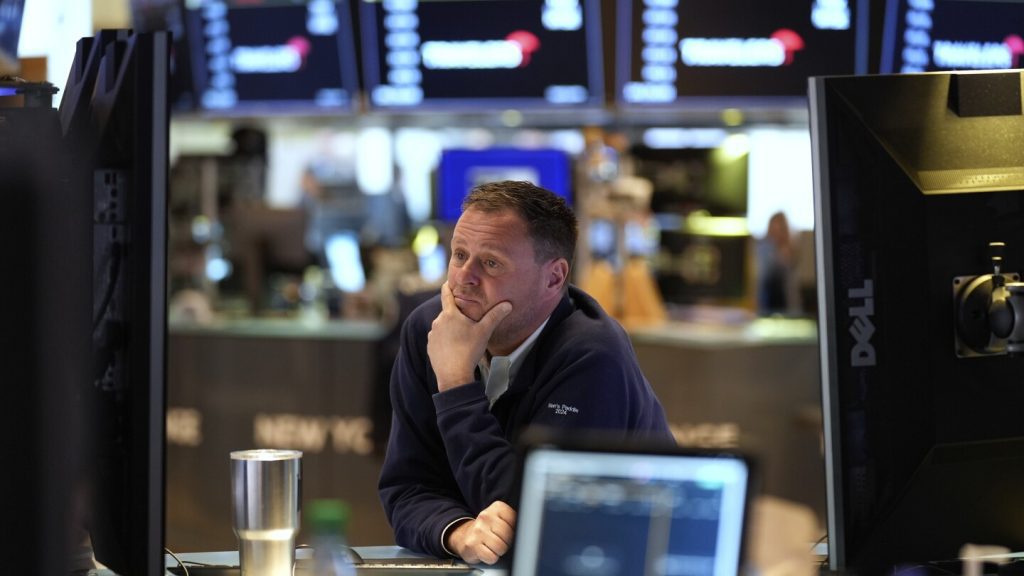U.S. Stocks Decline Amid Tariff Concerns
NEW YORK (AP) — U.S. stock markets experienced a significant downturn on what many are calling a “manic Monday” as President Donald Trump reaffirmed his commitment to tariffs, disregarding Wall Street’s preferences for a different approach.
The S&P 500 fell by 1.7% in midday trading, marking its worst performance since the onset of the COVID pandemic in March 2020. Currently, the index is nearing a 20% decline from its peak just two months prior, a concerning trend for many investors.
As of 1:05 p.m. Eastern time, the Dow Jones Industrial Average saw a drop of 860 points, or 2.2%, while the Nasdaq composite decreased by 1.4%. Earlier in the day, the Dow experienced a staggering decline of 1,700 points at the opening bell, reflecting global market fears regarding Trump’s tariffs potentially undermining the global economy. However, there was a brief rally where the Dow rebounded by nearly 900 points, while the S&P 500 briefly turned a 4.7% loss into a 3.4% gain.
This sudden surge in stock prices was spurred by a false rumor suggesting Trump might pause his tariffs for 90 days, which was quickly dismissed by a White House account on X as “fake news.” The fact that such a rumor could sway trillions in investments underscores the market’s keen interest in any modulations of Trump’s tariff policies, which have instigated a global trade conflict.
Following this, Trump threatened to further increase tariffs on China in response to that nation’s recent enacting of its own tariffs on U.S. goods. This stance provokes frustration amongst Wall Street professionals since it indicates that Trump may remain unaffected by the financial repercussions his decisions are causing. Trump’s previous comments led many to believe he would modify his policies in light of market distress.
In his comments aboard Air Force One on Sunday, Trump stated he does not desire a market decline, yet he expressed indifference towards the falling stock prices, suggesting that “sometimes you have to take medicine to fix something.” He has provided various motives for maintaining high tariffs, including an aim to revive U.S. manufacturing jobs, a process that could take years.
JPMorgan CEO Jamie Dimon warned in his annual shareholder letter that these tariffs may contribute to rising inflation and increase the likelihood of an economic recession. “The recent tariffs will likely increase inflation and are causing many to consider a greater probability of a recession,” he noted. This global financial strain persisted on Monday, marking a third consecutive day of severe losses post Trump’s tariff announcements amidst a backdrop of rising economic uncertainty.
Market Impact and Future Outlook
As the turbulence continued, nearly 90% of the stocks in the S&P 500 experienced declines, with Nike recording a significant 6.1% drop due to its heavy reliance on sales and manufacturing in China. Trump’s tariff strategy is seen as a challenge to globalization, which, while contributing to lower consumer prices in the U.S., has also led to job losses in manufacturing.
Amidst the uncertainties, analysts suggest that retaliatory tariffs from other nations are likely, hinting at prolonged volatility in the markets. “Market uncertainty and volatility are likely to persist for some time,” remarked Nathan Thooft, a senior portfolio manager at Manulife Investment Management.



